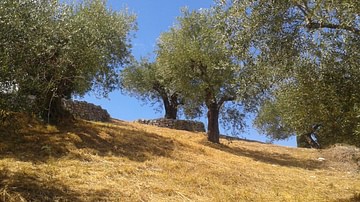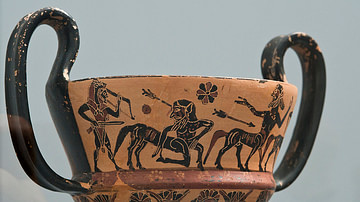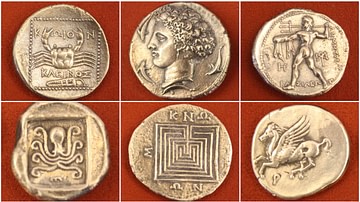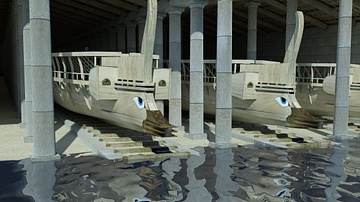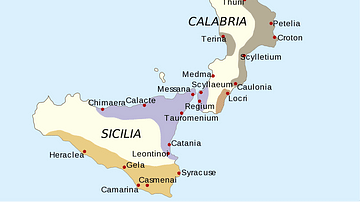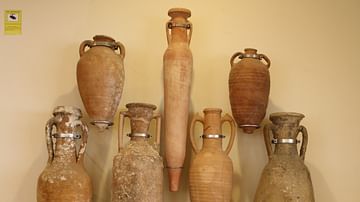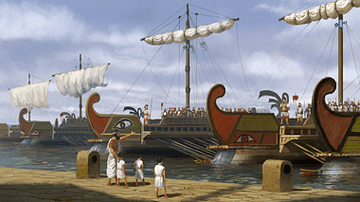The ancient Mediterranean was a busy place with trading ships sailing in all directions to connect cities and cultures. The Greeks were so keen on the rewards of trade and commerce that they colonized large parts of the coastal Mediterranean. In this collection of resources, we examine the products they exported such as wine and olive oil, the goods on offer in the agora markets that came via such important ports as the Piraeus, and the cultural consequences of all this activity from spreading Greek architecture to minting coinage. Such was the success of the Greeks in spreading their ideas and way of life that, even today, the culture of the Mediterranean spans across such modern inventions as national borders.
Greek cities were soon attracted by the fertile land, natural resources, and good harbours of a 'New World' - southern Italy and Sicily. The Greek colonists eventually subdued the local population and stamped their identity on the region to such an extent that they called it 'Greater Greece' or Megalē Hellas, and it would become the most 'Greek' of all the colonized territories, both in terms of culture and the urban landscape with Doric temples being the most striking symbol of Hellenization.


